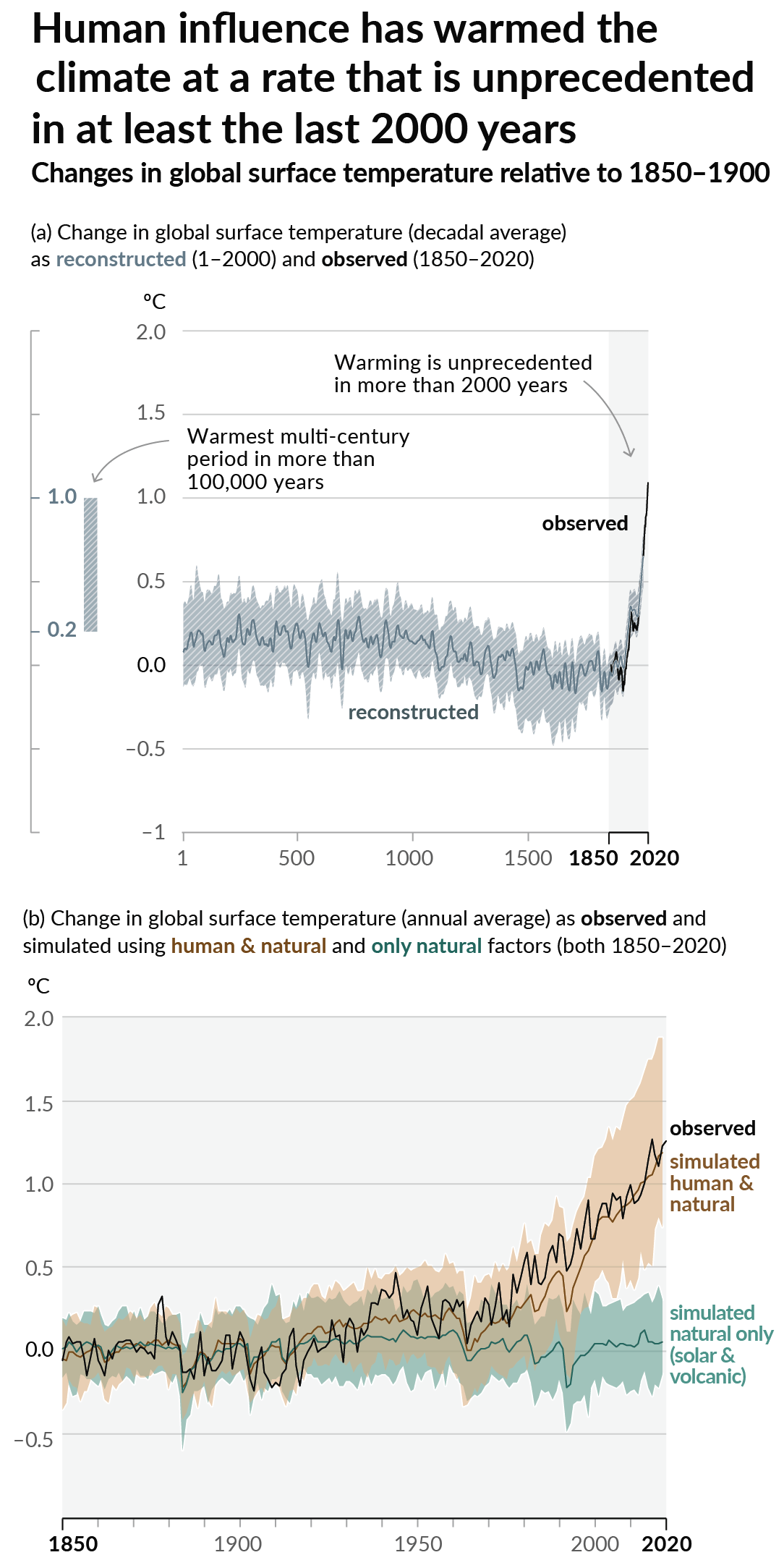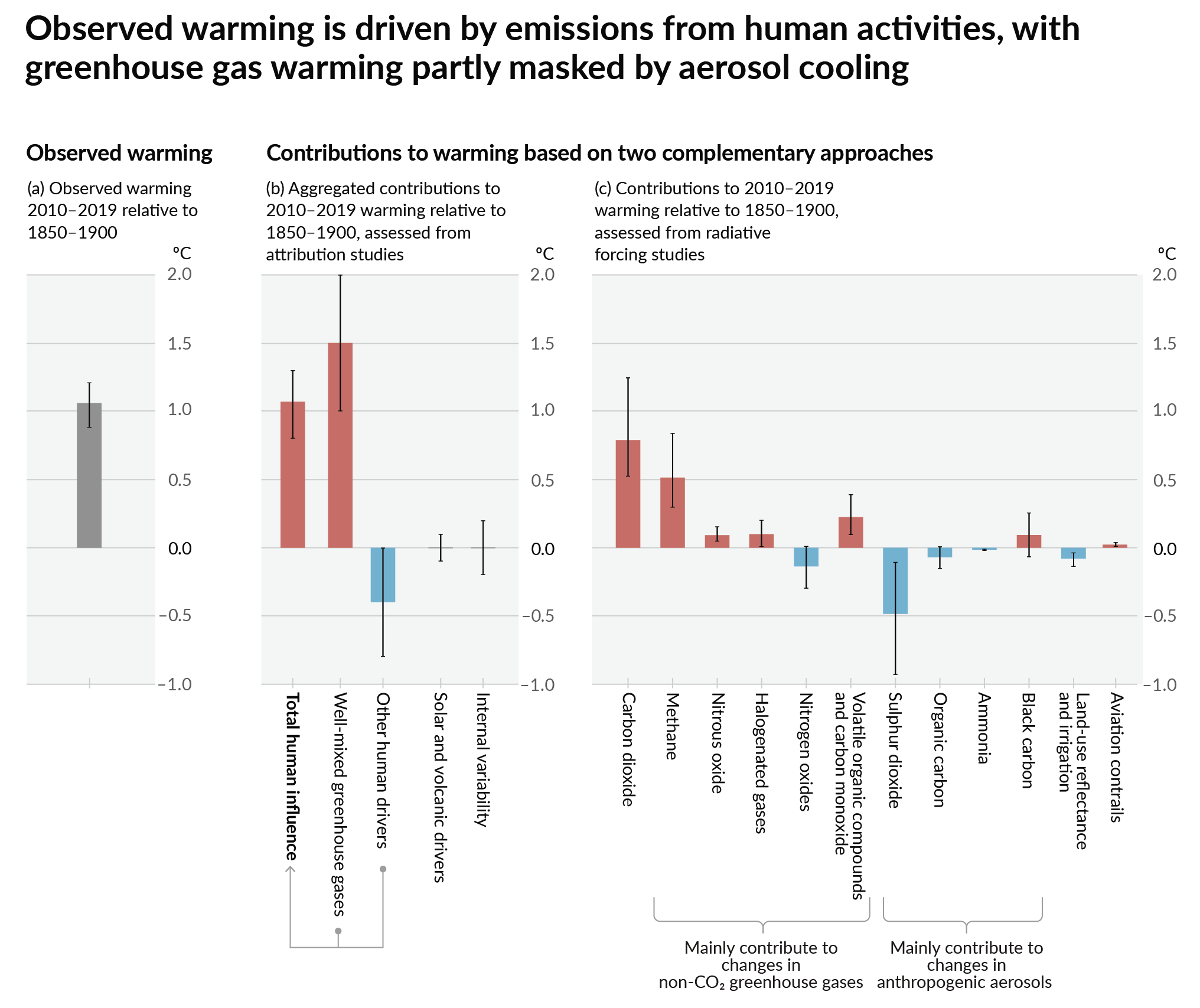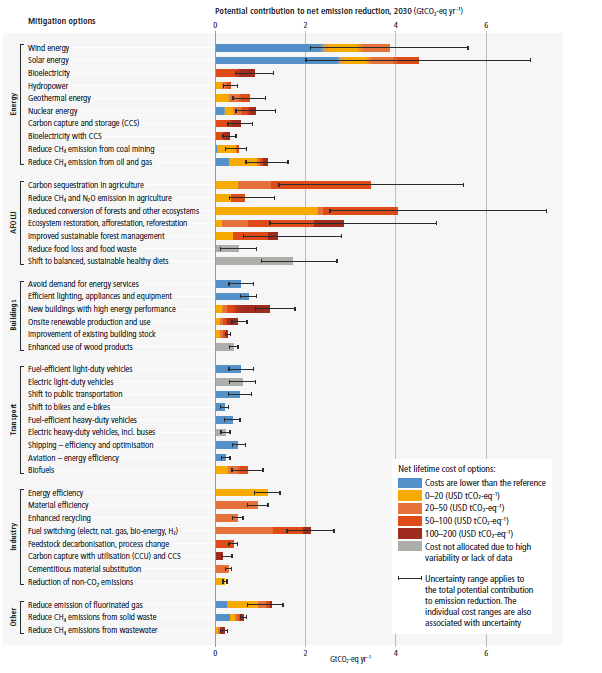101
The world’s largest direct carbon capture plant just went online
(www.engadget.com)
Discussion of climate, how it is changing, activism around that, the politics, and the energy systems change we need in order to stabilize things.
As a starting point, the burning of fossil fuels, and to a lesser extent deforestation and release of methane are responsible for the warming in recent decades:

How much each change to the atmosphere has warmed the world:

Recommended actions to cut greenhouse gas emissions in the near future:

Anti-science, inactivism, and unsupported conspiracy theories are not ok here.
You know... that actually doesn't seem that bad when you consider that the global GDP was 90T in 2022 - assuming linear scaling, sequestering the entire global carbon footprint would take 30% of global GDP.
Assuming that the economy grows (let's say 3%/yr) with lower carbon intensity (i.e we do some of the other things on the climate change bucket list) and manage to prevent emissions from growing, the global GDP surplus by 2030 would cover sequestering the costs for capturing all global emissions.
Now that's just napkin maths - and carbon capture is terribly inefficient and seems like an upper bound of cost. So, now consider how much less it might cost if we use efficient methods: Renewables, nuclear, HVACs, hydrogen steel, co2-binding concrete etc etc.
Eh, just a thought.